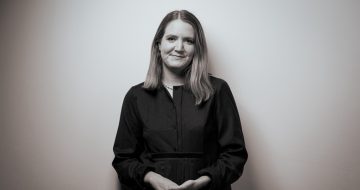Bates Wells senior associate Rayhaan Vankalwala reflects on his career journey and how aligning his work with his values has shaped his path so far

Sitting down with Rayhaan Vankalwala, now a senior associate working in data protection at Bates Wells, we begin at the start of his legal journey. There was no dramatic lightbulb moment, he tells Legal Cheek Careers — law was simply a subject that piqued his interest at university. That initial curiosity led to an internship in 2014 with GE Capital, the financial arm of General Electric, in its data protection team, which would spark an interest that shaped the rest of his career.
The internship, which took place before the introduction of the GDPR (General Data Protection Regulation), offered Vankalwala his first real taste of data privacy work. “It was a really good opportunity, and the people I worked with were great. It was my first experience with data protection,” he recalls. That experience, combined with a master’s degree in international law that touched on information law and data protection, cemented his lasting interest in the field. After a training contract at the London office of a US law firm — which gave him further exposure to data protection alongside other practice areas — Vankalwala soon found himself gravitating almost entirely towards privacy work. “Data sort of stood out as the main thing that I was interested in,” he says.
But what later drew him to Bates Wells, a firm described by many as a City outfit with a conscience? Vankalwala was open-minded about whether his next role would lean more towards data protection or technology, but one non-negotiable was finding an employer “that was purpose-driven in its work.” He wanted an organisation whose client base and casework reflected a social conscience, not just good internal policies. Many law firms have a good culture, but at Bates Wells that good culture is reflected in the work itself. With its “values-led work”, Bates Wells ticked that box. “It just felt like the right fit,” he says, citing the firm’s “mission-driven ethos and supportive culture”. Since joining Bates Wells, Vankalwala has devoted his practice entirely to data protection matters while also contributing to the firm’s socially conscious projects.
Working within Bates Wells’ charities and social enterprise team, Vankalwala finds that data protection issues crop up across every department of the firm. Many of his clients are charities, non-profit organisations or other purpose-led organisations, and this work is especially rewarding. “I like the clients I work for — I find working with them enriching,” he reflects.
The scope of work in data protection is, as one might expect, broad. After all, information is everywhere. One day Vankalwala might be advising a charity on a new initiative — say, a support programme or fundraising campaign — making sure the client understands its privacy obligations and keeps individuals’ rights in mind. On another day, the team could be dealing with a dispute over data: perhaps an individual trying to exercise their rights, or a claim for compensation after a data breach. In the latter scenario, Vankalwala often works alongside colleagues in the disputes team to assess the merits and navigate the case. So broadly speaking, Vankalwala’s work spans both contentious and non-contentious matters, from preventative compliance advice to disputes, reflecting how deeply data issues permeate the modern world.
Crucially, data protection isn’t just about box-ticking compliance — it has a deeply human dimension. If there’s one thing Vankalwala wants us to take away from this interview, it’s that “data protection is a branch of human rights law.” As he emphasises, “the right to privacy is fundamental”. Resolving data issues often requires “weighing up the rights of one individual and the rights of another, such as balancing one person’s access to information with another’s privacy or dignity”. These situations can be complex, but that’s exactly what Vankalwala enjoys, since they allow lawyers to be creative within the framework of the law. “You do have to be quite creative in making those arguments,” he adds.
We turn to artificial intelligence, another topic which currently dominates conversations both in the legal sector and beyond. AI tools generate and process vast amounts of data, raising new legal questions. “A number of organisations feel like they need to get on the train when it comes to AI — that fear of being left behind,” Vankalwala tells us, “but it remains important that they do so in a way that is responsible and ethically sound. Clients often want to adopt AI solutions and seek advice on the associated compliance issues and risks. Equally, there are cases where automated decisions are challenged by those affected. Those are the two main areas,” he explains — helping organisations use AI responsibly and resolving problems when algorithms go wrong.
How is the law keeping up with these developments? Vankalwala notes that, at least in the UK, regulators are currently taking an innovation-first approach. “The headline as far as the UK is concerned is that innovation is king,” he says of the government’s stance. |But this light-touch approach means there’s a lack of regulation, which I think is a little bit risky when it comes to protecting people”. Vankalwala suggests public trust in AI would be higher with clearer rules. In practice, lawyers must often rely on existing laws like data protection to guide clients. In advising on AI, Vankalwala aims to help clients “embrace new technology while also making them aware of the actual risks, both to clients themselves, but also to the individuals who might be impacted by the use of the relevant technology.” And despite all the buzz, he offers a reality check: “massive investment in AI hasn’t yet yielded commensurate gains, so to an extent, the jury is out on how groundbreaking AI will be.”
As our conversation winds down, we return to careers advice. Vankalwala’s key message for future solicitors is to let your genuine interests guide you. There’s no need to mould yourself into a standard template and authenticity can indeed be a great asset. “When people speak passionately about the things that they love, it really resonates,” he says. “It could be anything — sport, music, social media, entrepreneurship — as long as you can relate it back to useful skills for a legal career.” Likewise, try to build your commercial awareness in areas you truly enjoy, rather than just following what you think you “should” do. “You can do all the right things like read the FT every day but we can tell when that’s just a box-ticking exercise,” Vankalwala observes. “Pursue the things that you’re interested in. Nothing we do is in a vacuum — everything can be translated to something else,” says Vankalwala, stressing the importance of sincerity and passion. “One of the great things about our profession is that there is no one type of lawyer. We all bring something different to the table.” Vankalwala’s parting advice is simple: “Do the things that you care about and do so with as much passion and gusto as you possibly can.”
About Legal Cheek Careers posts.


